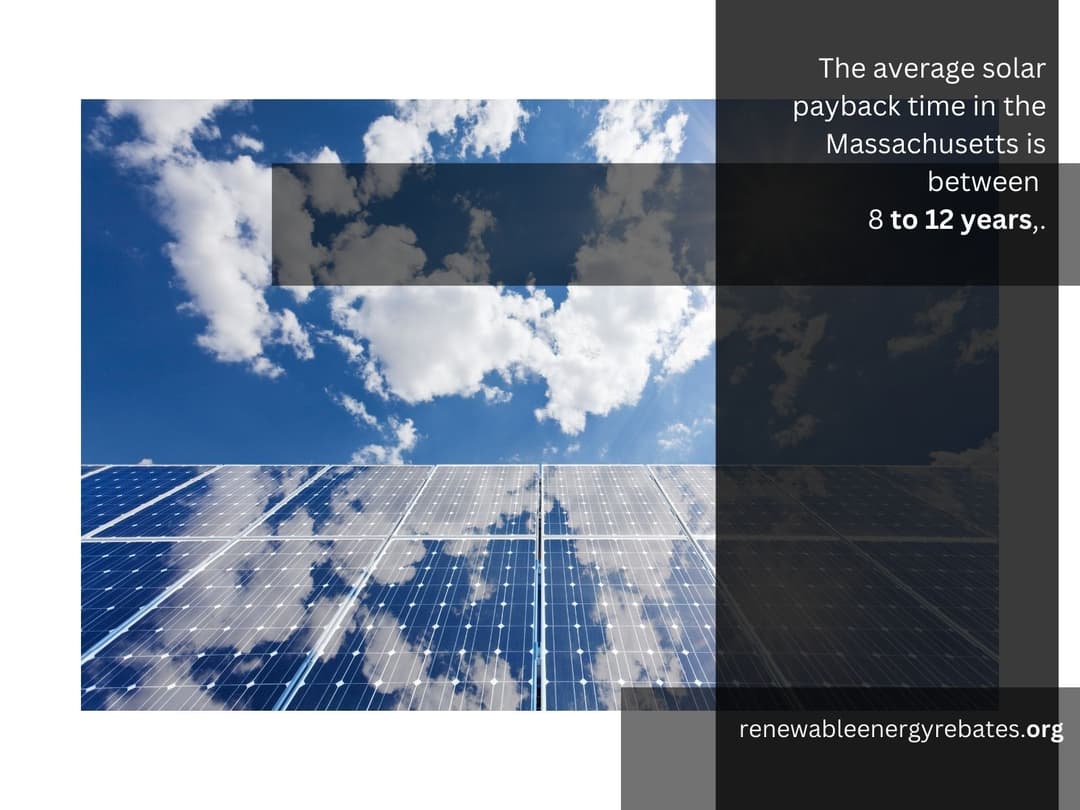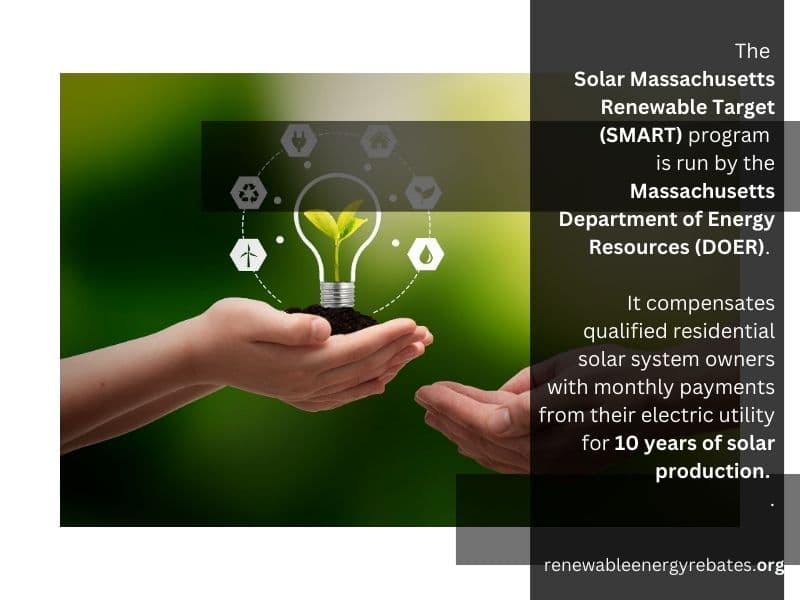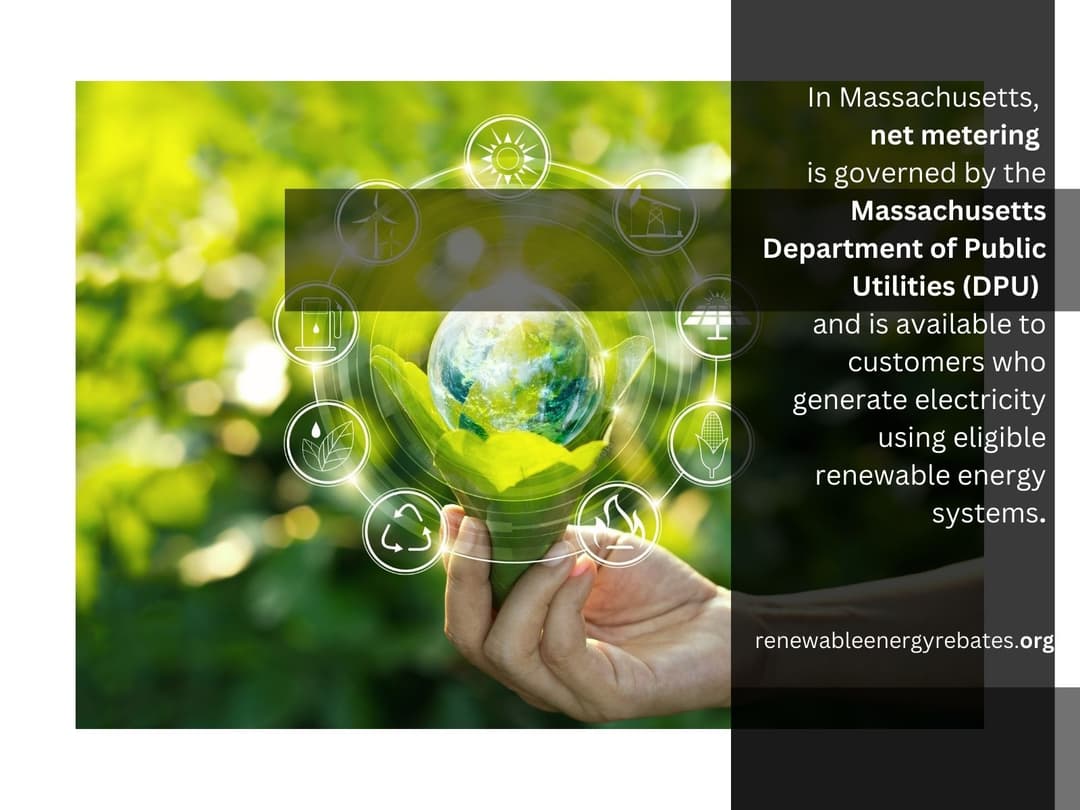Solar Panels in Bristol County, MA
Installing Solar Panels in Bristol County, Massachusetts: Costs, Incentives & More
Key Details
- The average cost of installing a solar panel in Bristol County, MA, is between $14,535 and $19,665.
- It takes an average of five years for the solar panel to pay for itself.
- Incentives for solar energy include the Solar Massachusetts Renewable Target (SMART) Program, NET Metering, and Federal Solar Tax Credit.
- Solar users can sell excess energy through net metering
- Some top-rated solar companies in Bristol County include Great Sky Solar, Green Power Energy, and ACE Solar.
How Much Do Solar Panels Cost in Bristol County, MA?
On average, solar panels in Bristol County, MA, cost $3.84 per watt. Most medium to large-sized households in Bristol County use at least 5kWh of solar energy, with an average installation cost of between $14,535 and $19,665.

Estimated solar panel cost before and after using a federal tax credit.
| Energy System Size | Solar Panel Cost | Cost After Credit |
| 3 kW | $10,260 | $7,592 |
| 4 kW | $13,680 | $10,123 |
| 5 kW | $17,100 | $12,654 |
| 6 kW | $20,520 | $15,185 |
| 7 kW | $23,940 | $17,716 |
| 8 kW | $27,360 | $20,246 |
| 9 kW | $30,780 | $22,777 |
| 10 kW | $34,200 | $25,308 |
How Long Does it Take for Solar Panels to Pay for Themselves in Bristol County?
It takes an average of five to nine years for a solar panel installation to pay for itself in Bristol County. This timeframe varies, depending on the energy output and installation cost. As a rule, the more energy you produce, the faster the solar panel pays for itself.
The solar panel payback duration is the time it takes for the savings on your energy bill to cover the installation cost.
Let’s say it costs $20,520 to install a 6KWh solar panel. Calculate the net cost by subtracting the 30% federal tax credit. In this case, the net price for a 6kWh PV system in Bristol County is $15,185.
If you save an average of $1,900 in energy bills annually, the solar panel payback period is eight years.

Note: The solar panel payback duration must ideally be half its lifespan. Solar panels last for 25 years. So, your preferred option must have a payback period of less than 12.5 years.
How Can I Calculate a Solar Payback Period in Bristol County, MA?
The solar panel payback duration depends on various factors. To accurately calculate the solar payback period, homeowners will need to:
- Calculate the electricity usage.
- Calculate annual solar savings.
- Determine the solar payback period.
Calculate the electricity usage.
First, you need to determine your energy usage per annum. This calculation will help you to install a system with enough output to handle your energy usage.
Case Study: Jamie’s residence uses 10,000 kWh of energy per year.
On average, a 1kW solar panel installation in Bristol County will create 1,200 kWh of solar energy per year.
This means Jaime will need a 9-kWh solar panel installation to meet energy demands.
Calculate the Cost of installing solar energy.
After determining the solar capacity, the next step is calculating the net cost of installing the system. Since a 9 kWh system costs $30,700, Jamie must deduct all solar incentives to get the net installation cost.
The federal tax credit helps drive the cost down to $21,940. Massachusetts also offers a $1000 solar rebate. So, he’s left with $20,940 as the net cost.
Calculate the Annual Solar Savings.
The annual solar savings is how much you save for not buying energy from utility companies.
Note: The net metering rule allows solar users to earn credits for not using electric power.
To calculate your annual solar savings, start by figuring out how much utility companies charge per kilowatt-hour.
Utility companies in Bristol County charge an average of 22.98 cents/ kWh. So, a 9 kWh solar panel will save you $2,068 in annual solar savings.
Determine the Solar Panel Payback Period.
This step is relatively straightforward once you estimate the annual solar savings.
Calculate the solar panel payback duration by dividing the net cost of installation by the annual solar savings.
Using our previous example, divide $20,940 (net cost of installation) by $2,068 (annual solar savings). The solar system will take 10 to 11 years to pay for itself.
What are the Incentives for Solar Energy in Bristol County, Massachusetts?
Depending on the city and size of the installation, Bristol County residents may be eligible to receive one or more of the following incentives for installing solar panels:
- Solar Massachusetts Renewable Target (SMART) Program
- NET Metering
- Federal Solar Tax Credit
- Massachusetts Property Tax Exemption
- Solar Loan programs
- Massachusetts Personal Income Tax Credit
Solar Massachusetts Renewable Target (SMART) Program
Under the SMART program, solar users are eligible to receive energy credits from utility companies in the state. The utility company must pay you energy credits for every kilowatt your solar panel generates.

Solar users may redeem the energy credit for electricity from utility companies when the solar output falls.
Note: Your solar energy output will fall on days with low sunlight, especially during winter or stormy weather.
After signing up for this program, Bristol County residents receive this credit or SREC for a specified period. Solar homeowners can receive the payment for ten years. However, commercial solar users will get this payment for 20 years after installation.
Note: The solar panel capacity determines the amount of credit each homeowner receives. Your energy credit is also dependent on your block and the utility company supplying the electricity. Bristol County solar users will get a higher credit if they are allocated a new block. However, the rate is lower when the block is almost filled up.
NET Metering
Unlike the SMART program, there is no time limit in the Net Metering rule. The net metering also enables users to sell off excess solar energy to utility companies. This time, you are not limited to selling to investor-owned utility companies. Through this system, utility companies will buy excess solar energy from solar users in Bristol County. Users will receive energy credits in this exchange.

The Federal Solar Tax Credit
The federal solar tax credit will offer a 30 percent refund on the total solar installation cost. Solar users may file for this refund in their annual tax form. In some cases, solar companies will file the form on your behalf.
As of 2023, the federal tax credit covers 30 percent of a solar installation cost. In 2022, it was set at 26 percent.
Massachusetts Personal Income Tax Credit
Besides the FTC, solar users will also receive a 15 percent refund for installing solar panels. The Massachusetts personal income tax credit has a limit of $1,000.8. Note that this offer is restricted to residential solar panel owners.
Massachusetts Sales Tax Exemption
The Massachusetts sales tax exemption removes all tax on purchased equipment. Once again, this offer is limited to residential solar panel owners.
Massachusetts Property Tax Exemption
Thanks to the Massachusetts property tax exemption, solar users don’t need to pay tax on real estate value added to their property. Check in with the Office of the local tax assessor to find out if you qualify. The local tax assessors’ offices in Bristol County are:
Berkley Assessor
1 North Main Street
Berkley, Massachusetts
Phone: (508) 822-7955
Fax: (508) 828-6755.
Dartmouth Assessor
400 Slocum Road
Dartmouth, MA
Phone: (508) 999-0709
Mansfield Town Assessor
6 Park Row
Mansfield, MA
Phone: (508) 261-7350
Norton Assessor
70 East Main Street
Norton, MA
Phone: (508) 285-0270
Raynham Town Assessor
558 South Main Street
Raynham, MA
Rehoboth Assessor
148 Peck Street
Rehoboth, MA
Seekonk Town Assessor
100 Peck Street
Seekonk, MA
Taunton Assessor
15 Summer Street
Taunton, MA
How Can I Sell Solar Energy in Bristol County, Massachusetts?
Through net metering, solar users in Bristol County can sell off excess solar energy to utility companies in Massachusetts. The net metering rule is the difference between your PV system output and the energy received from a utility company.
So, this scheme will pay you based on the excess energy generated from the solar panel.
The net metering scheme classifies users into three groups based on the solar panel output. These groups are Class I, II, and III. The Class I group contains solar users with panels that produce less than 60 kWh.
On the other hand, those in the Class II and III groups have energy outputs that exceed 60 kWh but lower than 2 MW. Residential solar owners generally fall under the Class I category.
Bristol County seeking to qualify for net metering must fulfill these requirements:
- They must be connected to a utility company in Bristol County.
- Must fulfill the utility company's requirements before installing a renewable energy source.
- You must send an application for a cap allocation to MassACA.
What are the Best Solar Energy Companies in Bristol County, Massachusetts?
The best solar companies in Bristol County include:
Great Sky Solar
Established in 2012, the Great Sky Solar Company has designed and installed solar panels for many homes and brands in Bristol County. Great Sky is a great option for new users seeking to install their first solar panel. It provides in-depth tutorials on how to manage solar systems. In addition, it advises users on the best investment plans for solar installation. According to most reviews, the company has a flexible financing option.
Green Power Energy
The Green Power Energy solar company has a multi-state presence and has installed over 300 solar panels. According to most reviews, the company has a very affordable pricing option. In addition, it handles all aspects of solar installations, including permits and tech help. Green Power Energy has all the necessary licenses, including the NABCEP Certified Installer and MASS SMART Program. It has no local office in Bristol County.
ACE Solar
Since its establishment in 2005, ACE Solar has provided over 300,000 kilowatts of solar energy to residences and commercial facilities in Massachusetts. The company handles all aspects of solar installation, including designing the right solar system for a property. It also provides different financing options, including power purchase agreements (PPAs), loans, and leasing options.
SunPower
With a 38-year experience in providing solar energy, SunPower is one of the largest and most reputable solar companies in the New England area. Solar users in Bristol County can reach out to SunPower to get a quote on their preferred solar system. The company’s team will come for an onsite inspection and later design the right solar system for your property.
Do You Need a Handyman or a Solar Installer in Bristol County?
Yes. According to the U.S. Office of Energy Efficiency and Renewable Energy, professionals with the necessary licenses and certifications must install solar systems. There are also a lot of local guidelines that support this stance.
Do Solar Panels Increase a Home Value in Bristol County?
Yes. Your home value will increase after installing solar panels. Per a study by Lawrence Berkeley National Laboratory, homeowners can receive up to $5,911 for each kilowatt of solar power installed. Sometimes, the added value is almost equal to the cost of installing the solar unit.
Are Solar Panels Exempt from Property Taxes in Bristol County?
Yes. Bristol County exempts solar users from paying property tax on the installed unit. In line with the MA Renewable Energy Tax Exemption, homeowners with installed solar units are exempt from paying property tax for 20 years.
How to Find Solar Companies Near Me in Bristol County, Massachusetts?
Bristol County residents can find solar companies via these steps:
Step 1: Build a list of solar companies in Bristol County.
Your preferred solar company must have physical or online presence in Bristol County. A quick Google or Bing search using the search phrase “solar companies in Bristol County'' or “Solar companies near me” will reveal these brands. Create a list using the search results.
Step 2: Checklist solar companies that are licensed or certified.
In this step, visit the official website of each company. Next, search if they have a license to operate in Bristol County. Preferred solar companies must have licenses, such as the North American Board of Certified Energy Practitioners (NABCEP) certification.
Step 3: Ask for recommendations from your social circle and check online reviews.
Avoid solar companies without the proper licenses. Next, visit popular review sites like Yelp and Google Review to help you see what others say about these companies.
Step 4: Reach out to the solar company.
Reach out to the solar company. Most solar companies maintain an online presence on social media sites. Ask the necessary questions including financing options.